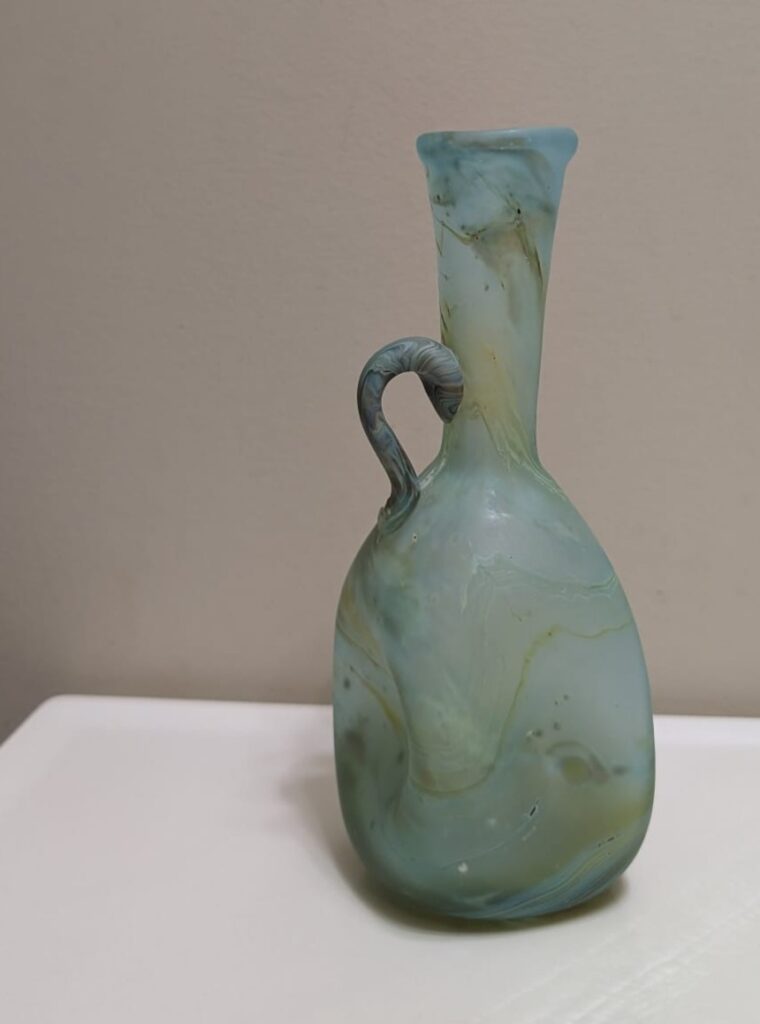
Truth-telling.
What is it?
In the case of a survivor coming forward with their story, what does truth-telling look like?
Why is truth-telling so important?
What makes truth-telling so hard?
In the thick of the abuse, a survivor has to do whatever it takes to protect herself from harm. And usually, that is the path of least resistance; the path of least conflict.
Picture with me a newly married couple, whose car broke down on their honeymoon. Initially, the wife is talkative, helpful, willing for whatever adventure follows. But the abuser is sullen, even angry. He blames her for the breakdown, because it had been her car before they were married. He belittles her or scoffs at her input, getting angry at her helpful suggestions. Soon, she just shuts up. His anger is escalating, and it isn’t safe for her to keep talking.
A little later, when the intensity of the situation has settled out, she ventures to touch him, and he slaps her hand away, with a growled “Leave me alone! Don’t touch me!” He turns to his side of the bed, indifferent to the unbidden tears that surge to her eyes. She crawls dejectedly into bed, with a sinking heart, and a knotted stomach.
“I’m sorry,” she whispers softly. “I didn’t mean to make you angry, and I sure didn’t know the car would break down.”
But it falls on deaf ears. He has tuned her out, and though the rigidity of his muscles say he has not fallen asleep yet, there is no acknowledgment that she has even spoken.
In this situation, what would truth-telling look like?
Truth-telling would ideally be the wife saying, “Husband, when you get angry at me for speaking to you, it really hurts. I am trying to be helpful, but when you speak to me that way, I feel like you don’t want to hear what I have to say, or that I’m not important to you. In times like this, I need to know that we are in this together, and that we will pull together as a team to find a solution to our problem, but when you tell me to leave you alone, and not to touch you, I feel very abandoned, unprotected, and alone.”
But does she say any of this? No. Instinctively, she knows it would not be safe for her to say any of these things. So does she tell a lie? No. She doesn’t tell him how unsafe she feels with him, but neither does she hide her tears. She shrinks into silence, and tries to toughen her skin, so he can’t hurt her so badly the next time. She does retreat into her little corner, and withdraw her head into her shell, much like a turtle which has been threatened.


Or picture with me, this same couple a few years down the road of life, and they are in a discussion about how to parent their young child. The husband thinks that anything that they don’t want the child to get into should be put out of reach, but the wife wants to teach the child how to leave those things alone, and how to respect the house rules.
The abuser becomes frustrated and angry, because they cannot agree, and eventually pounds his fist down on the table (or through a nearby wall), and walks out, slamming the door, enough to make the house rattle.
She gives him a few minutes, and then as gently as she can, she asks, “So what are we going to do?”
She braces herself, because instinctively she knows what’s coming, but she needs to know what she is supposed to be doing.
He yells at her, “If you would just submit as a wife is supposed to submit, we wouldn’t need to be having this conversation, would we? Just because you think training the children to leave stuff alone is the best way, doesn’t mean it is! What if the child gets a knife, or drinks some kind of cleaning poison?”
To keep the peace and avoid conflict as much as possible, she retreats a few steps. “I didn’t say that we couldn’t put the dangerous items out of reach, but I think that teaching them to respect the rules, and control themselves is important in all of life, and now is the time to learn it, while they’re little.”
“Look, Woman,” he practically yells, “we are going to put locks on all the cabinet doors, and I’m even gonna build a small shelf for our daughter’s shoes way out of her reach, so they won’t be scattered all throughout the house. But you had better quit disrespecting me!”
She lowers her eyes instinctively, and in a lower tone, apologizes: “I’m so sorry. I didn’t mean to disrespect you. Can you tell me how I was disrespectful to you?”
“One day, I’ll write it all down for you, how disrespectful you are to me, but just know that I’m the head of this house, and what I say, goes!” He slams his fist into the table for emphasis, and she inwardly cringes.
She is as baffled as she can be, because she truly meant no disrespect, but if he says she was disrespectful, there must have been something she’d done, perhaps unknowingly, that disrespected him.
“Husband, I’m truly sorry for disrespecting you. I’ll try to do better. And if you can help me understand how I’ve been disrespectful, I’d be so grateful.”
What would truth-telling look like here, and why doesn’t she do it?
Ideally, if she were to tell the truth, she would be able to say to him, “Can we work on a solution that meets both of our concerns for teaching our children respect, and still keeping our children safe? What if we had certain cabinets that were locked where we keep our cleaners and sharps, etc, and other areas that we teach them are off limits, such as other people’s drawers, bedrooms, purses, and such things?”
If he then accuses her of being disrespectful, the truth-teller should be able to say, “I didn’t feel any disrespect for you, just now. Could you explain what made you feel disrespected?”
They should then be able to have a conversation where he hears and believes her when she says she felt no disrespect for him, and he helps her to understand what felt disrespectful to him. Perhaps she can also tell him that when he indicates she doesn’t know what she’s talking about, and belittles her parenting ideas, she feels like he doesn’t value her or her opinion, and when he pounds the wall or table with his fist, or slams doors, it terrifies her.
But the reality is, she does none of these things. She is not lying – she is silent. She knows she would not be safe if she spoke her feelings.
One last scenario. He has accused her so many times of disrespecting him, but she has searched her heart over and over, and can’t understand what she is doing that feels like disrespect to him. She has asked him, but he has never been able to give a satisfactory answer. In a desperate attempt to better understand what she is doing wrong, she goes to the pastor or some other trusted male friend, and explains the situation. In an effort to protect her husband’s reputation, she doesn’t tell about him pounding the table or yelling at her, nor about the ugly names he calls her. She doesn’t tell about him slamming doors or throwing things across the room. She tells about her part in the argument, and asks if he has any idea what could be felt as disrespectful in that situation. She is cautious about what she tells him, not because she is wanting to lie about how bad things really are, but because she knows he may advise her to leave her husband for her own safety, and she desperately wants to protect her marriage. She also knows that if she tells what her husband has done, her husband may find out somehow, and deny her any more contact with her friends. She’s in a hard place, fighting for her marriage, but deep down, knowing that something isn’t right. She assumes she’s in the wrong, and does what she can to change, and cover for her husband, because she wants to be able to work through things, and build a happy, healthy marriage and home.


So in this case, what would truth-telling look like?
Truth-telling would look like honestly sharing the full situation, without covering for her husband, and whatever consequences follow, refusing to shield her husband from them. This feels very harsh to a survivor, because despite the wrong behavior and mistreatment, she still loves her abuser. It feels like she’d be betraying her husband, tearing her family apart, and destroying her marriage. It feels like she will hurt him irreparably, and she so desperately wants their home to remain intact, and become what God designed marriage and family to be. It feels like failure and giving up.
So she bravely puts one foot in front of the other, day after day, until she can not do so even one more day. She’s not intentionally deceiving anyone, nor even realizing that she is. But eventually, she gets to the place where she can not live the lies even one more day. Yes, they are lies, that sadly, even she herself believes.
The lie that change can happen without true repentance, and that true repentance can happen without an honest acknowledgment of wrong-doing.
The lie that love will protect and cover all that is wrong, and that love is able to build good out of bad. You can’t grow apples on thistles, nor can you build a healthy home out of unhealthy people and behaviors — without God’s intervention, of course.
The lie that she can be strong enough to overcome evil with good. There are negative effects that constant abuse has on our minds and bodies which we can do nothing about, no matter how much we focus on forgiving, loving as Jesus would love, and being the person God wants us to be. Eventually, what is hidden will become obvious, and it is only a matter of time until the truth will be known.
So, truth-telling. We’ve looked at what it is, and what it isn’t. We’ve seen why survivors find it hard to tell the whole truth.
Now, let’s look at why truth-telling is important, and the possible consequences and effects to the survivor, when they begin to tell the whole truth.
First, let me remind you, Jesus says He is the Way, the Truth, and the Life (John 14:6). When you are walking in Truth, you are walking in Jesus. You are in close fellowship with Him. You are close to His heart. This is important to remember, because as you walk through discovering truth, people will not always understand or agree with what you say. But you can be assured that Jesus is your personal cheerleader, cheering you on each step of the way, because He’s all about truth. He is Truth.
Second, Jesus also tells us that the Truth will set us free, and whom the Son makes free, shall be free indeed! (John 8:32-36) God’s heart is to free the captive, to unburden the oppressed, and to care for the widow, the fatherless, the poor, and the stranger. Perhaps you don’t feel it as keenly as I did, but I felt like a captive, a slave; I felt oppressed, burdened, and overwhelmed. In many ways, because I had to do almost everything alone, I felt like a widow. Know that God’s heart for you is liberty and freedom, whether you find that in the relationship you’re currently in, or whether you find it by leaving the relationship, and truth is the path to that liberty and freedom, painful as it may feel along the way.
But you need to also know that your husband is a captive, a slave, oppressed and burdened by sin. And God’s heart for him is also to be set free. And again, the truth is the path to that liberty. When you are covering for him, you are creating an environment where his sin can thrive and grow. When you begin to tell the truth, his deeds are exposed and he is given opportunity to repent and begin to walk in freedom. True love is unwilling to leave our loved one in the grasp of sin, if it is within our power to free them. However, they still have the power to choose. God doesn’t take that from him, nor does He take it from you.
If your husband chooses to continue in sin, he will not find freedom. And if you continue to cover for his sin, you also will not find freedom.
These are the reasons truth-telling is important, but what are the possible consequences and effects for the survivor who begins to tell the whole truth?
As a quick side note, here, I’d like to caution you: if you are an abuse survivor, use caution in when you tell the truth, and to whom you tell the truth. Make sure you are telling a safe person, and that you are in a safe place, before you begin to tell the whole truth, or that you have a plan established to get to safety if needed, as quickly as possible.

Sadly, it is often not the immediate redemption story we’d like to see. That redemption comes through tears, and hard-fought battles.
Many times, instead of believing the survivor, people will side with the abuser. That is hard to see, and feels like rejection and abandonment to the survivor.
I have puzzled long over why this happens, and I believe there may be several reasons, but I think the main reason is that it requires less energy, less time invested, less everything to side with the abuser. All you must do is believe him, give him the friendship and admiration he needs to feel loved, and he’s happy. Or better yet, he professes to change, and it can be marked down as one more score for the person or church; another pat on the back for one more person “helped”.
But the survivor, on the other hand, is often broken, mentally unstable, in poor health, and in need of everything from believing and validating her story, to financial aid, and holding her hand each step of the way. It takes months, if not years, of constant care, and daily presence to walk with them through the journey to healing. It is not a journey for the faint of heart. Progress is slow, and sometimes nearly invisible. Most are not equipped for the strenuous marathon.
Many times, the survivor is accused of things they are not guilty of, such as twisting facts to fit their agenda, or such as being the abuser instead of the victim.
Many times, people don’t understand the severity of the abuse, and grow impatient with the process or think that the survivor needs to just get over it already.
And in the churches I come from, it is not uncommon for families to turn against the survivor because they believe they are acting contrary to Scripture.
Another thing I’ve seen happen more than once, is that a survivor’s children will be alienated against the survivor by the church, by the abuser, or by family on either side.


Truth-telling can cost a survivor everything they have, everything that is dear to them. And once they start, there is no turning back.
So to those of you who may be helping a survivor, understand the cost before you encourage them to begin truth-telling, and allow them the time and space they need to come that decision on their own, before they begin. If you push them into that decision before they’re ready, you may have them turn on you, blaming you for their losses, and they’ll lose one of the few people in a position to help them, at a time when they are most vulnerable. Give them time and space to count the cost, because it will most likely be great. Not only will they lose their marriage, in most cases, but they will lose much more, often including their financial security and multiple relationships. If you give them the time and space to come to the decision on their own, they know without you telling them that it is the right thing to do, and they will have more strength to follow-through.
And to those of you who are survivors, standing on the brink of truth-telling, I want to
encourage you. There is nothing pretty about the journey, at first. It is heart-shattering at several levels, it is grueling, and it is painful. But the God of Truth walks beside you each step of the way, carrying you when you need it most, giving you strength to hang on, and bringing you an unexplainable peace in the midst of the pain.
I have learned, as I walked this journey, that not only is God the God of Truth with a keen interest in your truth-telling journey, but He is also the God of Redemption.
We’ve grown up hearing that all of our lives, but take a moment to ponder that word, Redemption.
Redemption is the act or process of redeeming, and there are so many different facets of the word Redeem, that Redemption becomes a most beautiful concept, when you consider all of the meaning packed into it.
To buy back. Hopefully, you’ve experienced Jesus Christ buying you back from the enemy’s grasp, winning back your heart from following after the pleasure of sin.
To free from what distresses or harms, such as captivity; to extricate from or help to overcome something detrimental. This is what God wants to do for you through the process of truth-telling.
To release from blame or debt; to free from the consequences of sin. Sometimes this takes a lot of time, but eventually, God does vindicate those who walk consistently in truth.
To change for the better; to repair or restore. It may be hard to see at first, but God does this in our lives, usually by removing us from those harmful situations, but occasionally by changing the situation.
To offset the bad effect of; to make worthwhile.

While there are more, it is this last one I’ve mentioned here that has been so beautiful to watch unfold. Every part of my story, ugly as it was at one time, has been turned to beauty with the exception of three, for which I believe God is still working. In the moment, it looks impossible, but with God, nothing is impossible, and I have watched Him turn around the worst of situations in a moment, or sometimes, over time. He is God, and we don’t have to be able to foresee how He will work, nor what He will do; we need only believe Him, because He has promised that He will work all things together for our good, if we love Him (Romans 8:28).
And somehow, He makes it all worthwhile. All the losses. All the pain. All the heartbreak. It becomes part of the fabric of who we are, that strengthens and softens us at the same time to aid others in the pain and heartbreak of loss. There is just something beautiful about that.

In the midst of all the pain, the heartbreak, and the loss, God becomes so much more real, so much more intimate. The Bible indicates that God collects our tears in His bottle – what could be more intimate than that? I used to joke that God must have several bottles filled with all of my tears, and I couldn’t imagine what He wanted with so many, but then a friend brought back a bottle from Israel, which is traditionally thought to be the type of bottle God uses to hold our tears, and I was in awe. It was so beautiful – I actually hope I have a little collection of those bottles waiting for me when I get to heaven.
I can’t take the pain for you, as you begin this journey, nor can I predict all the twists and turns your path will take, but I can assure you that God will not abandon or forsake you. The journey with Him makes it all worthwhile, and watching Him bring redemption to every part of your story brings joy in the place of the pain. Don’t be rash in embarking on the journey, but don’t allow fear to paralyze you either. Telling the whole truth is the only path to freedom, and freedom is something that God wants for all of His children.
Isaiah 61:1-3(CSB) The Spirit of the Lord God is on me, because the Lord has anointed me to bring good news to the poor. He has sent me to heal the brokenhearted, to proclaim liberty to the captives, and freedom to the prisoners; to proclaim the year of the Lord’s favor, and the day of our God’s vengeance; to comfort all who mourn, to provide for those who mourn in Zion; to give them a crown of beauty instead of ashes, festive oil instead of mourning, and splendid clothes instead of despair. And they will be called righteous trees, planted by the Lord, to glorify Him.

Thank you for this meaningful sharing. I pray God will continue to guide you and give beauty for ashes , the oil of joy for mourning and the fulfillment His purposes in your life bringing healing to crushed and brokenhearted ones longing for Light and Hope.
Thankyou for sharing… for expressing thoughts that I could never do. Thankyou for the encouragement to keep on in the painful times.